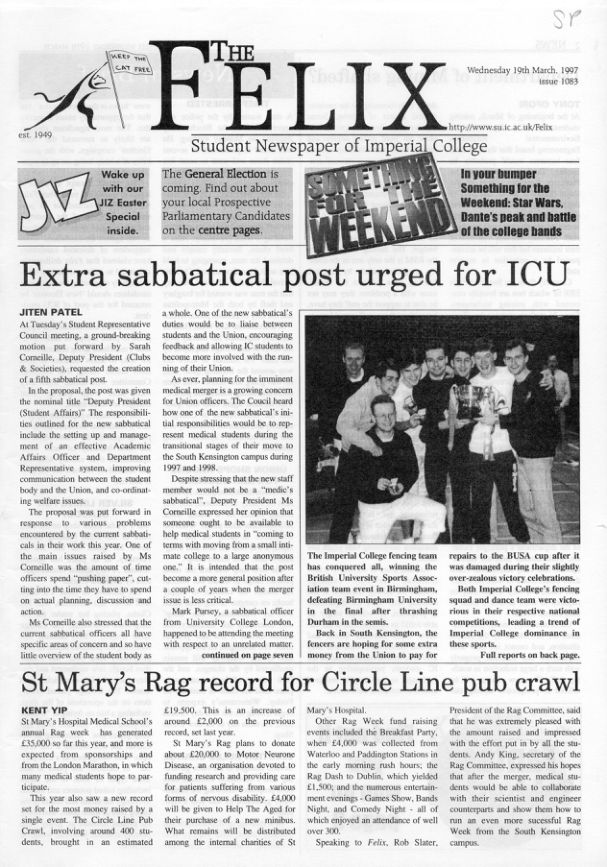Department of Mining shafted?
At the beginning of March, mining students in IC’s department of Environmental Resources Engineering heard that three of their four lecturers would probably be leaving. During a meeting held by Professor Rawlings, Dean of the Royal School of Mines and head of department, undergraduates were told that as of next September there would be significantly less teaching staff. Not only will they lose 80% of their lecturers but this will be accompanied by a reduction in support staff.
Currently there are five courses in ERE of which two are broadly concerned with mining techniques. Some 26 students stand to be affected by the changes. The mining department may be small, but many students and staff have expressed their belief in its value as an individual subject. Gone are the days when miners are are pictured wearing wellingtons and hard hats, bearing a Davy lamp in one hand and a pick in the other. Many now regard mining as a scientific discipline.
Speaking to Felix, Prof Rawlings insisted that the quality of the degree courses will be maintained despite the cuts, and went on to point out that the courses are regularly scrutinised by various examination bodies and any fall in teaching standards will be quickly picked up. However, many students remain unconvinced.
Present plans include keeping one of the department’s principle lecturers, while another three are encouraged to take early retirement. These three would return to work on a part-time basis, but they would only be required to work around a tenth of their current hours.
Understandably, many ERE students are bewildered by the current situation, and cannot see how their department can function properly with such a large reduction in teaching staff. Two new courses will be offered to prospective mining students, both focussing on the environmental aspect of mining. Some observers fear that the intention is to phase out ‘pure’ mining degrees and replace them with shallower courses concentrating on environmental concerns.
According to Prof Rawlings, "economic considerations" are the driving force behind this radical staff restructuring. At the moment the department feels unable to maintain its current staffing level within its budget. The mining department in the RSM is the only one in the country supported solely by research funding. This presents the department with a problem: they may not be able to support the staff they have, but without these staff cannot hope to win the funding they need.
Some students argue that the move to fewer teaching staff may make financial sense but is academic nonsense. ERE undergraduates may face a significant drop in teaching quality. With only one full-time lecturer and 26 students the staff:student ratio will be relatively high. In addition, links with industry forged by current lecturers may be severed upon their departure, making it difficult for students to gain a foothold in commercial mining.
ERE also suffers from a deficit of new recruits to the teaching staff, with three lecturers within 5 years of retirement age. In response, Prof Rawlings alluded to the difficulty in finding new lecturers in the mining discipline combining both youth and talent.
Another point of concern is a new European university exchange scheme for mining students. If the teaching staff leave the department as proposed, IC will no longer be able fulfill its commitment to the students from German, Dutch and Finnish universities. This will may also have serious implications for the IC students participating in the exchange, as they may be rendered unable to complete their course





